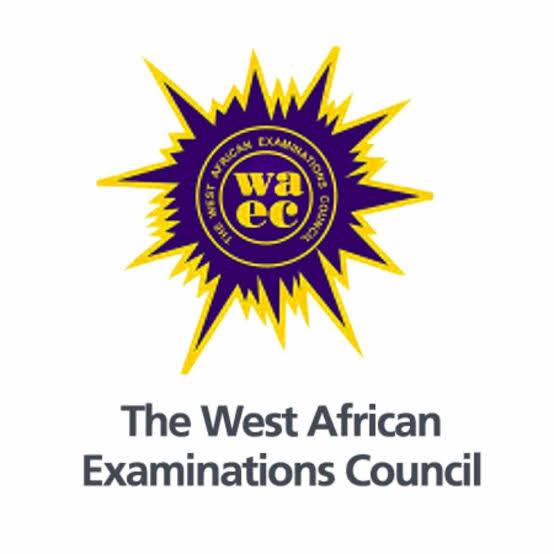The West African Examinations Council (WAEC) remains one of the most important public exams in Nigeria and across West Africa. Whether you're sitting for the school-based WASSCE or the private GCE version, understanding the exam format is crucial for success.
In this guide, we break down the WAEC 2025 exam structure, question types, marking scheme, subject groupings, and what students should do to prepare effectively.
Overview of WAEC Examination Types
There are two major WAEC exams:
| Type | Who It's For | Timing |
|---|---|---|
| WASSCE (May/June) | School candidates (SS3 students) | April – June |
| WASSCE GCE (Nov/Dec) | Private candidates (external or re-sit) | October – December |
Both types follow the same format, grading system, and syllabus.
Subject Groupings in WAEC
WAEC offers over 60 subjects categorized into five groups:
-
Compulsory Core Subjects (for all candidates)
-
English Language
-
Mathematics
-
Civic Education
-
-
Science Group
-
Biology
-
Chemistry
-
Physics
-
Further Mathematics
-
Agricultural Science
-
Technical Drawing
-
-
Commercial Group
-
Economics
-
Commerce
-
Accounting
-
Marketing
-
Office Practice
-
-
Arts & Humanities Group
-
Literature in English
-
Government
-
CRS/IRS
-
History
-
Music
-
Yoruba, Hausa, Igbo
-
-
Trade & Vocational Group
-
Data Processing
-
Catering
-
Auto Mechanics
-
Carpentry
-
Tourism
-
Animal Husbandry
-
WAEC Paper Structure & Exam Format
WAEC typically uses a 2- or 3-paper system for each subject:
1. Objective (Paper 1)
-
Format: Multiple-choice questions (usually 50–100)
-
Duration: 45 mins to 1 hour
-
Coverage: Entire syllabus
-
Scoring: 25–40% of total marks
2. Essay/Theory (Paper 2)
-
Format: Long-form questions (Answer 4–6 out of 10)
-
Duration: 1½ to 2½ hours
-
Scoring: 50–60% of total marks
-
Tip: Demonstrate clarity, structure, and depth of knowledge
3. Practical/Oral/Project (Paper 3)
-
For subjects like: Biology, Chemistry, Physics, Agric Science, Languages, Music, Art
-
Format: Hands-on lab or oral performance
-
Duration: Varies by subject (1–3 hours)
-
Scoring: 20–30% of total marks
WAEC Grading System
WAEC uses a letter and numeric grading scale:
| Grade | Score Range | Meaning |
|---|---|---|
| A1 | 75–100% | Excellent |
| B2 | 70–74% | Very Good |
| B3 | 65–69% | Good |
| C4 | 60–64% | Credit |
| C5 | 55–59% | Credit |
| C6 | 50–54% | Credit |
| D7 | 45–49% | Pass (Not acceptable for admission) |
| E8 | 40–44% | Weak Pass |
| F9 | 0–39% | Fail |
Minimum requirement for admission into Nigerian universities is at least 5 credits, including English and Mathematics.
Timing & Exam Duration
| Paper Type | Time Range |
|---|---|
| Objective (Paper 1) | 45 minutes – 1 hour |
| Theory (Paper 2) | 1.5 – 2.5 hours |
| Practical/Oral (Paper 3) | 1 – 3 hours |
Key Expectations for WAEC 2025
-
Strict adherence to time: Students must arrive 30 minutes before the paper begins.
-
Computer-based testing (CBT): May apply to some subjects in future; currently under pilot testing for GCE.
-
Candidate Verification System (CVS): Biometric verification is compulsory before exams.
-
No calculator for theory papers, except where approved.
-
Continuous Assessment (CA) for school candidates will count toward final grade.
Tips to Excel in WAEC 2025
-
Master the syllabus: Don’t guess—use the official WAEC syllabus for each subject.
-
Practice past questions: Aim to solve 10–15 years of previous papers.
-
Focus on core subjects first: Especially English, Math, and your chosen field (science, arts, or commercial).
-
Time your practice: Simulate exam conditions when preparing.
-
Revise diagrams, formulas, and definitions for science and technical subjects.
-
Don’t skip Paper 3: It matters as much as the theory.
Final Thoughts
WAEC 2025 will maintain the traditional paper structure and grading system, but with increased emphasis on preparation, punctuality, and strict examination conduct. The best way to succeed is to prepare with intention, master your subjects, and avoid malpractice.











